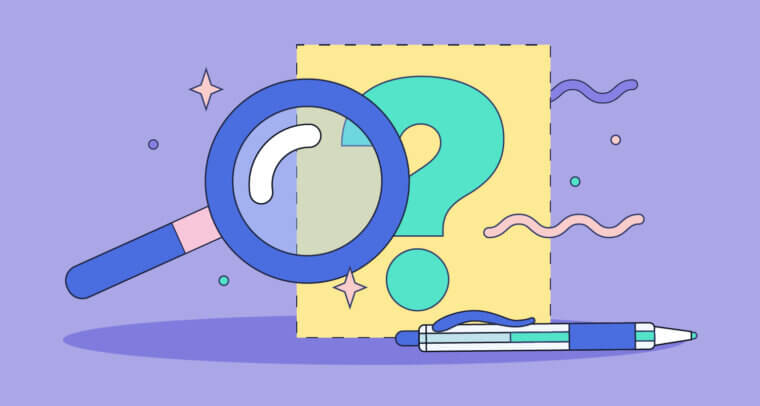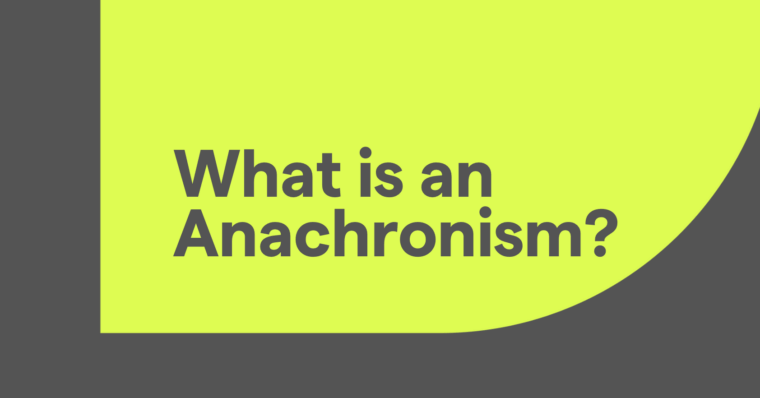
A hypothesis is a statement that explains the predictions and reasoning of your research—an “educated guess” about how your scientific experiments will end. As a fundamental part of the scientific method, a good hypothesis is carefully written, but even the simplest ones can be difficult to put into words.
Want to know how to write a hypothesis for your academic paper? Below we explain the different types of hypotheses, what a good hypothesis requires, the steps to write your own, and plenty of examples.
What is a hypothesis?
One of our 10 essential words for university success, a hypothesis is one of the earliest stages of the scientific method. It’s essentially an educated guess—based on observations—of what the results of your experiment or research will be.
Some hypothesis examples include:
- If I water plants daily they will grow faster.
- Adults can more accurately guess the temperature than children can.
- Butterflies prefer white flowers to orange ones.
If you’ve noticed that watering your plants every day makes them grow faster, your hypothesis might be “plants grow better with regular watering.” From there, you can begin experiments to test your hypothesis; in this example, you might set aside two plants, water one but not the other, and then record the results to see the differences.
The language of hypotheses always discusses variables, or the elements that you’re testing. Variables can be objects, events, concepts, etc.—whatever is observable.
There are two types of variables: independent and dependent. Independent variables are the ones that you change for your experiment, whereas dependent variables are the ones that you can only observe. In the above example, our independent variable is how often we water the plants and the dependent variable is how well they grow.
Hypotheses determine the direction and organization of your subsequent research methods, and that makes them a big part of writing a research paper. Ultimately the reader wants to know whether your hypothesis was proven true or false, so it must be written clearly in the introduction and/or abstract of your paper.
7 examples of hypotheses
Depending on the nature of your research and what you expect to find, your hypothesis will fall into one or more of the seven main categories. Keep in mind that these categories are not exclusive, so the same hypothesis might qualify as several different types.
1 Simple hypothesis
A simple hypothesis suggests only the relationship between two variables: one independent and one dependent.
Examples:
- If you stay up late, then you feel tired the next day.
- Turning off your phone makes it charge faster.
2 Complex hypothesis
A complex hypothesis suggests the relationship between more than two variables, for example, two independents and one dependent, or vice versa.
Examples:
- People who both (1) eat a lot of fatty foods and (2) have a family history of health problems are more likely to develop heart diseases.
- Older people who live in rural areas are happier than younger people who live in rural areas.
3 Null hypothesis
A null hypothesis, abbreviated as H0, suggests that there is no relationship between variables.
Examples:
- There is no difference in plant growth when using either bottled water or tap water.
- Professional psychics do not win the lottery more than other people.
4 Alternative hypothesis
An alternative hypothesis, abbreviated as H1 or HA, is used in conjunction with a null hypothesis. It states the opposite of the null hypothesis, so that one and only one must be true.
Examples:
- Plants grow better with bottled water than tap water.
- Professional psychics win the lottery more than other people.
5 Logical hypothesis
A logical hypothesis suggests a relationship between variables without actual evidence. Claims are instead based on reasoning or deduction, but lack actual data.
Examples:
- An alien raised on Venus would have trouble breathing in Earth’s atmosphere.
- Dinosaurs with sharp, pointed teeth were probably carnivores.
6 Empirical hypothesis
An empirical hypothesis, also known as a “working hypothesis,” is one that is currently being tested. Unlike logical hypotheses, empirical hypotheses rely on concrete data.
Examples:
- Customers at restaurants will tip the same even if the wait staff’s base salary is raised.
- Washing your hands every hour can reduce the frequency of illness.
7 Statistical hypothesis
A statistical hypothesis is when you test only a sample of a population and then apply statistical evidence to the results to draw a conclusion about the entire population. Instead of testing everything, you test only a portion and generalize the rest based on preexisting data.
Examples:
- In humans, the birth-gender ratio of males to females is 1.05 to 1.00.
- Approximately 2% of the world population has natural red hair.
What makes a good hypothesis?
No matter what you’re testing, a good hypothesis is written according to the same guidelines. In particular, keep these five characteristics in mind:
Cause and effect
Hypotheses always include a cause-and-effect relationship where one variable causes another to change (or not change if you’re using a null hypothesis). This can best be reflected as an if-then statement: If one variable occurs, then another variable changes.
Testable prediction
Most hypotheses are designed to be tested (with the exception of logical hypotheses). Before committing to a hypothesis, make sure you’re actually able to conduct experiments on it. Choose a testable hypothesis with an independent variable that you have absolute control over.
Independent and dependent variables
Define your variables in your hypothesis so your readers understand the big picture. You don’t have to specifically say which ones are independent and dependent variables, but you definitely want to mention them all.
Candid language
Writing can easily get convoluted, so make sure your hypothesis remains as simple and clear as possible. Readers use your hypothesis as a contextual pillar to unify your entire paper, so there should be no confusion or ambiguity. If you’re unsure about your phrasing, try reading your hypothesis to a friend to see if they understand.
Adherence to ethics
It’s not always about what you can test, but what you should test. Avoid hypotheses that require questionable or taboo experiments to keep ethics (and therefore, credibility) intact.
How to write a hypothesis in 6 steps
1 Ask a question
Curiosity has inspired some of history’s greatest scientific achievements, so a good place to start is to ask yourself questions about the world around you. Why are things the way they are? What causes the factors you see around you? If you can, choose a research topic that you’re interested in so your curiosity comes naturally.
2 Conduct preliminary research
Next, collect some background information on your topic. How much background information you need depends on what you’re attempting. It could require reading several books, or it could be as simple as performing a web search for a quick answer. You don’t necessarily have to prove or disprove your hypothesis at this stage; rather, collect only what you need to prove or disprove it yourself.
3 Define your variables
Once you have an idea of what your hypothesis will be, select which variables are independent and which are dependent. Remember that independent variables can only be factors that you have absolute control over, so consider the limits of your experiment before finalizing your hypothesis.
4 Phrase it as an if-then statement
When writing a hypothesis, it helps to phrase it using an if-then format, such as, “If I water a plant every day, then it will grow better.” This format can get tricky when dealing with multiple variables, but in general, it’s a reliable method for expressing the cause-and-effect relationship you’re testing.
5 Collect data to support your hypothesis
A hypothesis is merely a means to an end. The priority of any scientific research is the conclusion. Once you have your hypothesis laid out and your variables chosen, you can then begin your experiments. Ideally, you’ll collect data to support your hypothesis, but don’t worry if your research ends up proving it wrong—that’s all part of the scientific method.
6 Write with confidence
Last, you’ll want to record your findings in a research paper for others to see. This requires a bit of writing know-how, quite a different skill set than conducting experiments.
That’s where Grammarly can be a major help; our writing suggestions point out not only grammar and spelling mistakes, but also new word choices and better phrasing. While you write, Grammarly automatically recommends optimal language and highlights areas where readers might get confused, ensuring that your hypothesis—and your final paper—are clear and polished.





